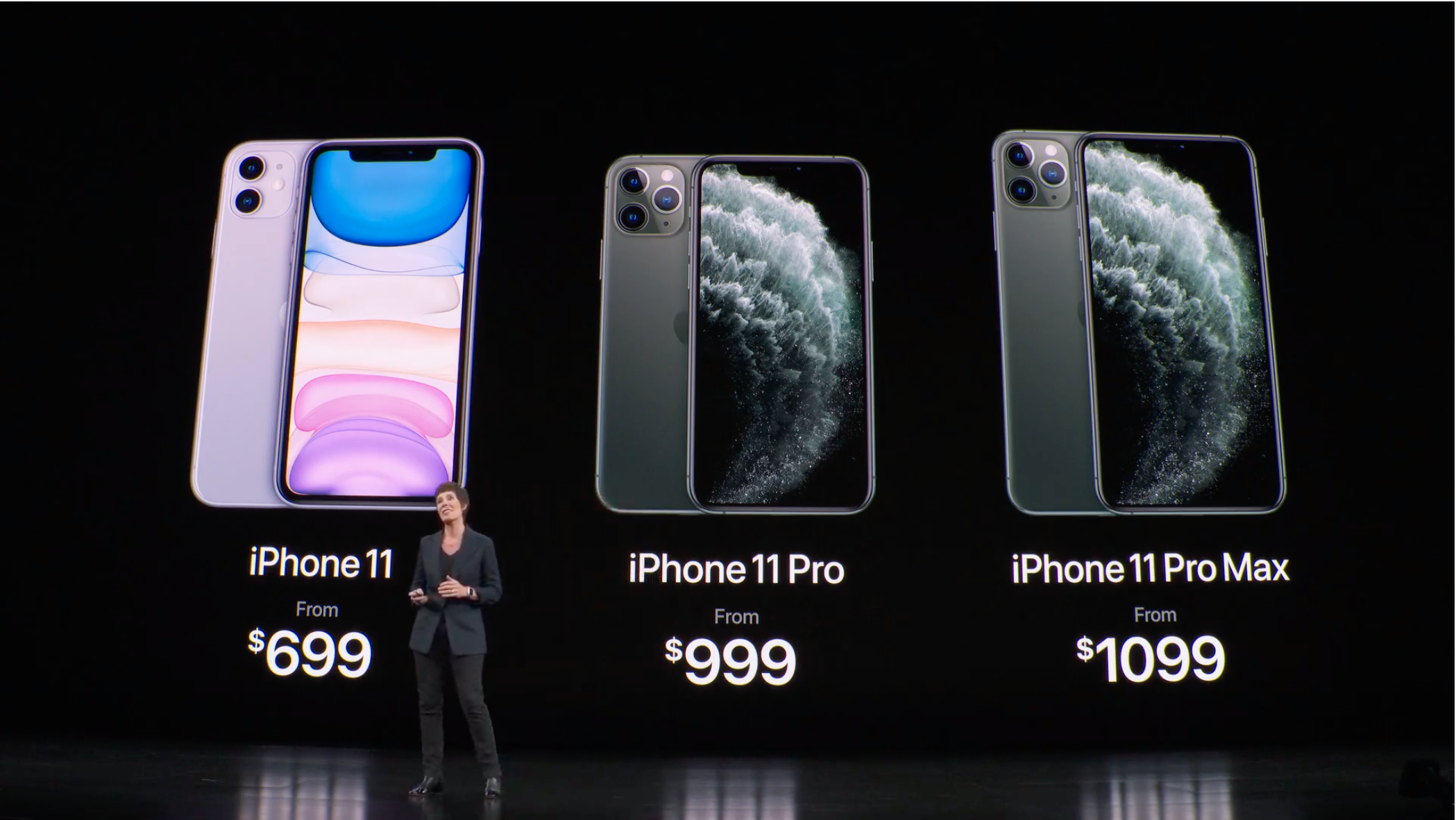No matter how much polish and Apple magic the company put on today’s big event, there was one unshakable truth that colored the goings-on: phones just aren’t selling like they used to. And unlike other industry-wide trends, Apple isn’t immune. The large-scale slowdown of smartphone sales has had an undeniable impact on the company’s bottom line.
Casual observers may not have noticed, but that harsh truth impacted nearly every mobile announcement onstage today at the Steve Jobs theater. Two elements in particular really stood out, however:
- Content and services taking center stage.
- Apple rethinking how the iPhone is positioned.
The first was clear right out of the gate. CEO Tim Cook opened the show by noting that the two-hour event would be so jam-packed with announcements that it was better to get out of the way and let the news do the talking. He then surrendered the stage to several gaming demos for Apple Arcade. After that, it was Apple TV+ trailers.
Of course, we’ve known for a while that software and services have and will continue to become an increasingly important part of the company’s bottom line, especially as the iPhone has become a less reliable revenue stream. But the act of stepping out of the way to let games and TV shows do the talking was a suitably on-the-nose metaphor for the shift. So too was the way in which hardware advances like the A13 chip were filtered through a gaming lens.
The biggest surprise of the event may well have been the $5 a month pricing for Apple TV+, coupled with a year of free service with the purchase of new hardware. Apple has always done a great job of coupling devices with its ecosystem, and that play is going to become increasingly important on the heels of a billion or so dollar investment in launching its own Netflix competitor.
Falling smartphone sales have also directly impacted the device itself. There are several reasons why global smartphone numbers have stalled, including things like feature glut and the fact that devices are good enough now to warrant holding onto them for even longer. In that sense, device makers have painted themselves into a corner as they’ve battled it out for market share.
The other key factor in slowed sales is escalating pricing. When Apple introduced the iPhone X a few years back, the $1,000 price point boggled the mind, especially for users who were accustomed to purchasing devices tied to cellular contracts. In 2019, however, the $1,000 flagship is just a fact of life. It’s no wonder companies aren’t selling as many devices.
Apple’s initial fix for this was the launch of the iPhone XR, a “budget” alternative to the X/XS line that kept the pricing of earlier models while adopting the new form factor. With the arrival of the iPhone 11, however, things have shifted. The iPhone R’s true successor is the iPhone 11, while the iPhone XS and XS Max have given way to the 11 Pro and 11 Pro Max, respectively.
This new positioning means Apple is able to position the more budget device as an “entry-level flagship,” even while maintaining a similar 6.1-inch TrueTone LCD display as the iPhone XR. Once again, the company distinguishes the standard from the Pros with a different display and camera array. It’s similar to the approach it’s taken on the iPad line, with the “pros” here referring to those who shoot on their iPhone for work.
It’s no coincidence the company trotted out Sean Baker. The director’s critically acclaimed films “The Florida Project” and “Tangerine” are routinely held up as examples of iPhone-shooting done right. Apple is clearly hoping that continued camera improvements will convince even more creatives to ditch the SLR.
For what was ostensibly a hardware event, the new devices took a bit of a backseat to content offerings. The era of giant hardware launches may be ending — or at the very least, ebbing. Smartphones certainly don’t drive consumer excitement the way they once did. Thankfully for Apple’s sake, however, the company’s got another billion-dollar bet waiting in the wings.


